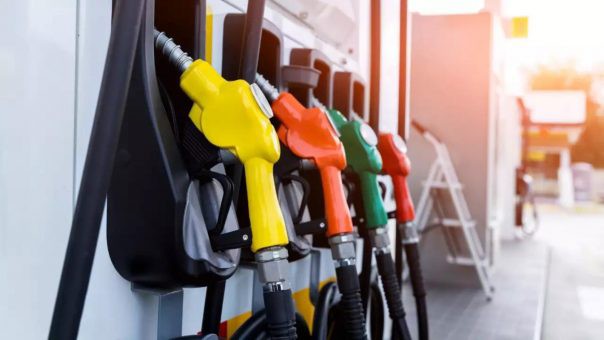Abuja, Nigeria — In a decisive move aimed at strengthening Nigeria’s local refining capacity and reducing dependence on imported fuel, President Bola Ahmed Tinubu has approved a 15 percent ad-valorem import duty on Premium Motor Spirit (PMS), commonly known as petrol, and Automotive Gas Oil (AGO), better known as diesel.
The new policy directive, contained in a letter dated October 21, 2025, was issued by Damilotun Aderemi, Private Secretary to the President, and addressed to both the Federal Inland Revenue Service (FIRS) and the Nigerian Midstream and Downstream Petroleum Regulatory Authority (NMDPRA).
Policy Objective: Encouraging Domestic Production
According to the communication, the decision followed a formal request by FIRS seeking presidential approval to impose a 15% ad-valorem duty based on the Cost, Insurance, and Freight (CIF) value of imported fuel products.
The directive aims to align import costs with domestic realities, making it less attractive for marketers to import fuel while making locally refined products—such as those expected from the Dangote Refinery and state-owned plants—more competitive.
A top industry source noted that the measure is part of President Tinubu’s broader strategy to revive Nigeria’s petroleum downstream sector and enhance energy self-sufficiency. “The introduction of import duty will encourage domestic refining and gradually phase out excessive reliance on foreign fuel,” the source explained.
Expected Impact on Pump Prices
The approved import duty is projected to increase the landing cost of petrol by approximately ₦99.72 per litre, according to preliminary government estimates. This could slightly affect retail pump prices, depending on global crude prices and logistics costs.
However, experts believe the short-term rise in fuel prices will be outweighed by the long-term economic benefits, such as job creation, local investment in refineries, and reduced pressure on Nigeria’s foreign exchange reserves.
A Push Toward Energy Sustainability
Nigeria, despite being Africa’s top oil producer, still imports over 80 percent of its refined petroleum products due to decades of underperforming state refineries. Tinubu’s administration has repeatedly expressed commitment to changing this narrative by creating a fair playing field for local refiners and discouraging indiscriminate importation that undermines domestic operations.
The new import duty aligns with the government’s economic reforms under the Renewed Hope Agenda, which prioritizes industrialization, revenue diversification, and sustainable energy policies.
Reactions and Industry Outlook
Economic analysts say the policy could spur rapid development in Nigeria’s midstream and downstream sectors. “This decision sends a strong signal that the era of heavy fuel importation is coming to an end,” said a Lagos-based energy economist. “It will motivate investors to expand domestic refining capacity and strengthen supply chain resilience.”
Meanwhile, oil marketers are reportedly reviewing how the new tariff will affect distribution and retail margins. The NMDPRA is expected to release implementation guidelines in the coming days, clarifying timelines and compliance frameworks for importers.
President Tinubu’s approval of a 15% import duty on fuel and diesel represents a strategic policy shift toward promoting local refining, protecting domestic industries, and boosting Nigeria’s energy independence. While consumers may experience a temporary rise in pump prices, the long-term benefits are expected to stabilize fuel supply, create jobs, and strengthen the national economy.


